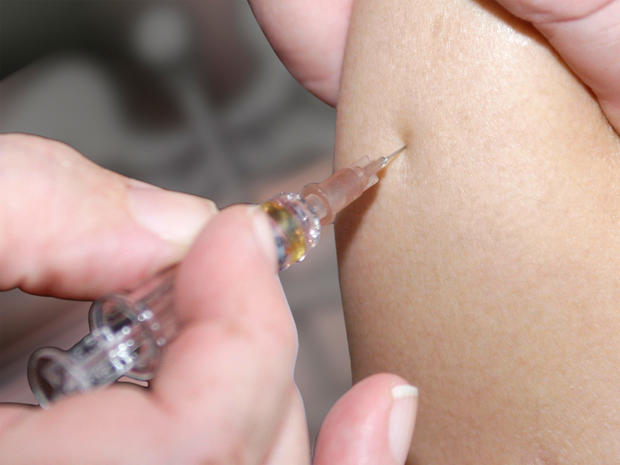Measles cases jump dramatically in 2011: Why?
(CBS/AP) Watch out for measles! That's what doctors are cautioning in the midst of one of the worst years for measles since 1996, adding that the recent rise in outbreaks is a reminder of the importance of getting immunized against the potentially lethal disease.
From January 1 through May 21, there have been 118 cases of measles across 23 states. That's much higher than usual.
How much higher? From 2001 to 2008, the median number of annual cases of measles has been 56, the CDC says. That's 56 cases in an entire year.
The CDC declared measles "eliminated" by the CDC in 2000, and since then cases of the disease have primarily spread by travelers returning from abroad. The agency estimates that 90 percent of the recent cases were "imported" to the U.S. by unvaccinated travelers.
The jump in measles cases in the U.S. seems to correspond with a worldwide outbreak of the disease. Thirty-three European countries have reported increased numbers of outbreaks. France tops the list with almost 10,000 measles cases reported through April, the CDC said in a written statement.
Measles is extremely contagious, spreading easily through the air - infected droplets can linger for up to two hours in closed spaces. The CDC now says infants six to eleven months of age should receive a dose of the measles, mumps, and rubella (MMR) vaccine - and unvaccinated persons one year or older should receive two doses of the vaccine at least 28 days apart - before traveling abroad.
Measles typically causes rashes, fever, muscle pain, pink eye, and sore throat . There is no treatment but rest and pain meds can help. The disease can lead to potentially fatal complications like pneumonia or encephalitis. None of the patients died in the recent outbreaks, but about 40 percent had to be hospitalized.
"It's nothing to sneer at," Dr. Peter Wenger, a pediatrician at the University of Medicine and Dentistry of New Jersey, said of measles, the Star-Ledger of Newark reported. "It's a pretty significant disease."
The National Institutes of Health has more on measles.
